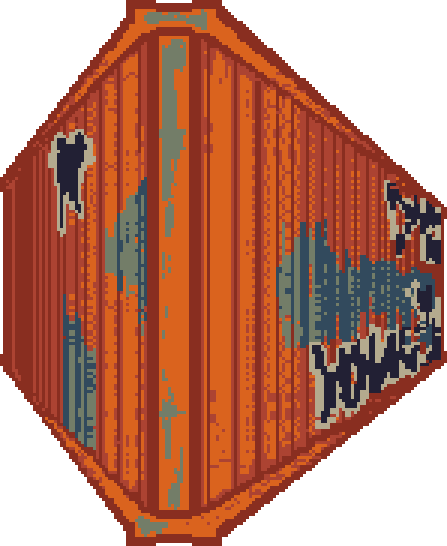youki is an implementation of runtime-spec in Rust, referring to runc.
youki is pronounced as /joʊki/ or yoh-key. youki is named after a Japanese word 'youki', which means 'a container'. In Japanese language, youki also means 'cheerful', 'merry', or 'hilarious'.
Here is why I am rewriting a new container runtime in Rust.
- Rust is one of the best languages to implement oci-runtime. Many container tools are written in Go. It's all very nice products. However, the container runtime requires the use of system calls, which requires a bit of special handling when implemented in Go. This is too tricky(e.g. namespaces(7), fork(2)); with Rust, it's not that tricky and you can use system calls. Also, unlike C, Rust provides the benefit of memory management. Rust is not yet a major player in the container field, and Rust has the potential to contribute more to this field. I hope to be one of the examples of how Rust can be used in this field.
- youki has the potential to be faster and use less memory than runc. This means that it can work in environments with tight memory usage. I don't have any benchmarks, etc., as it is not yet fully operational, but I expect that it will probably perform better when implemented in Rust. In fact, crun, a container runtime implemented in C, is quite high performance. For example, it may be possible to experiment with asynchronous processing using async/await in some parts.
- The development of railcar has been suspended. This project was very nice but is no longer being developed. This project is inspired by it.
- I have fun implementing this. In fact, this may be the most important.
- containers/oci-spec-rs - OCI Runtime and Image Spec in Rust
youki is not at the practical stage yet. However, it is getting closer to practical use, running with docker and passing all the default tests provided by opencontainers/runtime-tools.

| Feature | Description | State |
|---|---|---|
| Docker | Running via Docker | ✅ |
| Podman | Running via Podman | It works, but cgroups isn't supported. WIP on #24 |
| pivot_root | Change the root directory | ✅ |
| Mounts | Mount files and directories to container | ✅ |
| Namespaces | Isolation of various resources | ✅ |
| Capabilities | Limiting root privileges | ✅ |
| Cgroups v1 | Resource limitations, etc | ✅ |
| Cgroups v2 | Improved version of v1 | Support is complete except for devices. WIP on #78 |
| Seccomp | Filtering system calls | WIP on #25 |
| Hooks | Add custom processing during container creation | ✅ |
| Rootless | Running a container without root privileges | It works, but cgroups isn't supported. WIP on #77 |
| OCI Compliance | Compliance with OCI Runtime Spec | 37 out of 57 test cases passing |
Local build is only supported on linux. For other platforms, please use Vagrantfile that we prepared.
$ sudo apt-get install \
pkg-config \
libsystemd-dev \
libdbus-glib-1-dev$ sudo dnf install \
pkg-config \
systemd-devel \
dbus-devel$ git clone git@github.com:containers/youki.git
$ cd youki
$ ./build.sh
$ ./youki -h # you can get information about youki commandLet's try to run a container that executes sleep 5 using youki.
Maybe this tutorial is need permission as root.
$ git clone git@github.com:containers/youki.git
$ cd youki
$ ./build.sh
$ mkdir tutorial
$ cd tutorial
$ mkdir rootfs
$ docker export $(docker create busybox) | tar -C rootfs -xvf -Prepare a configuration file for the container that will run sleep 5.
$ curl https://gist.githubusercontent.com/utam0k/8ab419996633066eaf53ac9c66d962e7/raw/e81548f591f26ec03d85ce38b0443144573b4cf6/config.json -o config.json
$ cd ../
$ ./youki create -b tutorial tutorial_container
$ ./youki state tutorial_container # You can see the state the container is in as it is being generate.
$ ./youki start tutorial_container
$ ./youki state tutorial_container # Run it within 5 seconds to see the running container.
$ ./youki delete tutorial_container # Run it after the container is finished running.Change the command to be executed in config.json and try something other than sleep 5.
Starting the docker daemon.
$ dockerd --experimental --add-runtime="youki=$(pwd)/target/x86_64-unknown-linux-gnu/debug/youki"
In case you get an error like :
failed to start daemon: pid file found, ensure docker is not running or delete /var/run/docker.pid
That means your normal Docker daemon is running, and it needs to be stopped. For that, open a new shell in same directory and run :
$ systemctl stop docker # might need root permission
Now in the same shell run the first command, which should start the docker daemon.
You can use youki in a different terminal to start the container.
$ docker run -it --rm --runtime youki busybox
Afterwards, you can close the docker daemon process in other the other terminal. To restart normal docker daemon (if you had stopped it before), run :
$ systemctl start docker # might need root permission
Go and node-tap are required to run integration test. See the opencontainers/runtime-tools README for details.
$ git submodule update --init --recursive
$ ./integration_test.sh
You can try youki on platforms other than linux by using the Vagrantfile we have prepared.
$ git clone git@github.com:containers/youki.git
$ cd youki
$ vagrant up
$ vagrant ssh
# in virtual machine
$ cd youki # in virtual machine
$ ./build.sh
We also have an active Discord if you'd like to come and chat with us.
TBD(WIP on #14)
This project welcomes your PR and issues. For example, refactoring, adding features, correcting English, etc. If you need any help, you can contact me on Twitter.
Thanks to all the people who already contributed!



